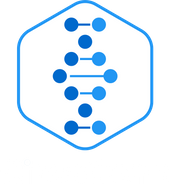With direct-to-consumer genetic testing, it can determine the risk of cancer, however, if it will develop or not is not certain. There are many factors which go beyond results gathered through DTC genetic testing that contribute to the risk of developing cancer such as:
And more. It can create high levels of stress, it's strongly recommended that genetic testing is not used to analyse cancerous cells because of the uncertainty of results and anxiety produced from not fully knowing.
-What kinds of direct-to-consumer genetic tests are available?
People buy genetic tests to identify certain changes within their genes so that potential genetic conditions can be confirmed. However, the type of genetic testing suitable depends on what information you’re trying to find out. Direct-to-consumer genetic tests are the new booming form of genetic testing in the healthcare industry. When purchasing one, it’s essential to ask yourself questions that will help you indicate the best DNA testing kit for you in order to know what you’re getting out of the testing kit and the types of results you’ll be expecting from it.
When unlocking the secrets to our DNA, we learn a lot about ourselves individually. When purchasing a direct-to-consumer DNA testing kit, it’s vital to know what genetic information you want to obtain. It’s normal to ask questions that lead you through your buying process and should be a standard procedure to use when purchasing a kit for genetic testing.

We have listed 3 types of direct-to-consumer genetic tests and what results you are to expect from the kit:
If you want to find more information on genetic risks for specific medical diseases, such as rare genetic disorders then these types of kits can indicate that for you. This information can help a person to make better decisions about their lifestyle choices in order to promote a healthier living.
When interested in finding more about your heritage and ethnicity, ancestry tests are used to unveil new and past family connections. Hence, helping you connect to your roots and map out relationships with unknown relatives.
These tests are used when questions around the probability of paternity need to be answered. As our DNA is inherited from our parents, when the identity of your parents is uncertain then these tests match the child’s DNA with the father and/or mother’s DNA.

COPYRIGHT © CIRCAGENE LTD ™ ALL RIGHTS RESERVED